Spring has sprung, and Amy is freshly back from the United Kingdom with new inspiration from the bright minds she encountered at ARIA’s Precision Neurotechnologies Programme kickoff.
In this issue we explore:
Transcranial magnetic stimulation (TMS) treatment in a single day
What to eat to protect your brain
Super Bowl week’s annual NFL Players’ Association Pitch Day
Latest One Mind Mental Health Accelerator cohort announced
CEO Spotlight: Q&A with Don Vaughn
Could transcranial magnetic stimulation (TMS) ever be short, sweet, and convenient—without losing its effectiveness? We sat down with the CEO of Ampa Health* to hear about the company’s hot-off-the-presses breakthrough technique that prepares your brain to get the most out of a one-day depression treatment.
Satori Neuro: For those who don’t know—because you’ve been in stealth for a while—could you describe what you are building over at Ampa Health and why?
Dr. Don Vaughn: We are in the middle of a mental health epidemic that only seems to be getting worse, and the current solutions out there are not solving it. So my co-founder, Dr. Jonathan Downar, and I created Ampa to build scalable brain stimulation technology that has the chance of eliminating and eradicating depression, anxiety, and other mental health disorders.
We are neuroscientists by training, and we think of the brain as an incredibly beautiful three-pound wet machine. Mental disorders come principally from that machine not being in proper balance with itself. So rather than ingest chemicals, it’s possible to take a brain stimulator that non-invasively uses powerful magnetic fields to deliver treatment to very specific parts of the brain. It’s called Transcranial Magnetic Stimulation, or TMS. When that circuit is back into balance with the rest of the brain, people end up coming out of depression and anxiety in record time.
SN: How should we be thinking about the difference between chemical therapeutics and TMS as approaches to mental health?
DV: They couldn’t really be more different. The underlying issue is that particular circuits are not at their normal levels of activity. One option is to send in chemicals that affect every cell in the brain (and also many cells in the body). There’s not much precision and control there, so they come with a host of side effects, from weight gain to sexual dysfunction.
Amy on the Road
In January, Amy participated in a the Global Brain Health Initiative’s annual strategy meeting, focused on brain health and diet at the Russell Senate building in DC (above). Five senators from both sides of the aisle along with hosts Social Impact Partners (SIP) and other leaders met to discuss the evidence for food as a foundation of cognitive resilience. In conjunction with the event, SIP released their white paper The Vibrant Mind: A Guide to Neuroprotective Nutrition [18MB PDF].
At the One Mind Accelerator Spring 2025 event in Menlo Park, CA, Amy spoke on the investor panel (above) along with GreyMatter’s Andrew Barr, David Dolby of Dolby Family Ventures and moderator Christopher Lyle of Skyline Capital.
After meeting with industry leaders and entrepreneurs at the Sachs Neuroscience Innovation Forum, Satori Neuro co-hosted with Joyance Partners a JPM Week Reception (pictured below) at Hotel Zetta for founders, researchers, and investors participating in JP Morgan Healthcare Conference in San Francisco.
Amy joined Breakout Ventures, Dolby Family Ventures, and AIX Ventures at the Clift Hotel’s historic Redwood Room for a meeting of the week’s investing minds.
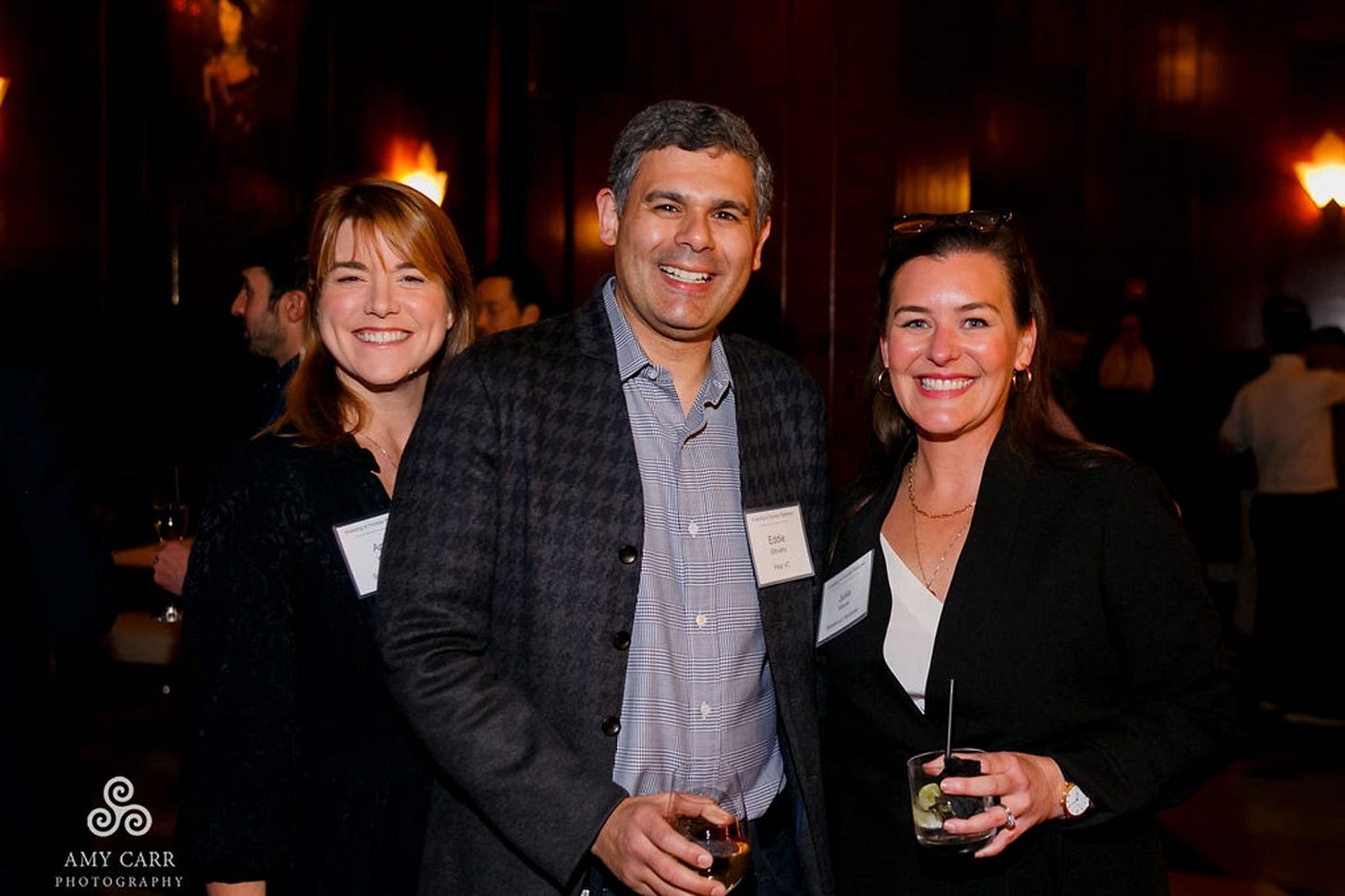
Amy delivered the plenary address at ARIA’s Precision Neurotechnologies programme kickoff in London (below) where 19 teams of R&D Creators were announced as funding recipients.
Portfolio Companies in the News & Other Developments
NextSense* was one of just three companies selected to present during Super Bowl week to NFL Players Association Pitch Day’s panel of all-star judges. CEO Jonathan Berent introduced Tone, the EEG-powered earbuds that transform sleep and brain health, optimizing performance both on and off the football field.
Motif Neurotech* was selected in January to receive a multimillion dollar grant from UK’s Advanced Research and Invention Agency (ARIA) as part of the Precision Neurotechnologies program. The funding will support development of Brain Mesh, a network of millimeter-sized implants that can monitor and modulate specific cell types across entire neural circuits.
Paradromics, on whose board Amy serves, announced in February a strategic partnership with Neom Investment Fund. The company, which is gearing up for its first human trial this year, will establish a Brain-Computer Interface Center of Excellence in the Neom region of northwest Saudi Arabia.
Leading mental health startup program One Mind Accelerator announced its 2025 cohort of 16 Pre-Seed, Seed, and Series A companies selected from roughly 200 applicants. Among those selected are two Satori Neuro portfolio companies—Ampa Health* and Attune Neurosciences*—in addition to the previous participation of Holobiome* (2024 cohort) and Motif Neurotech* (2023 cohort).
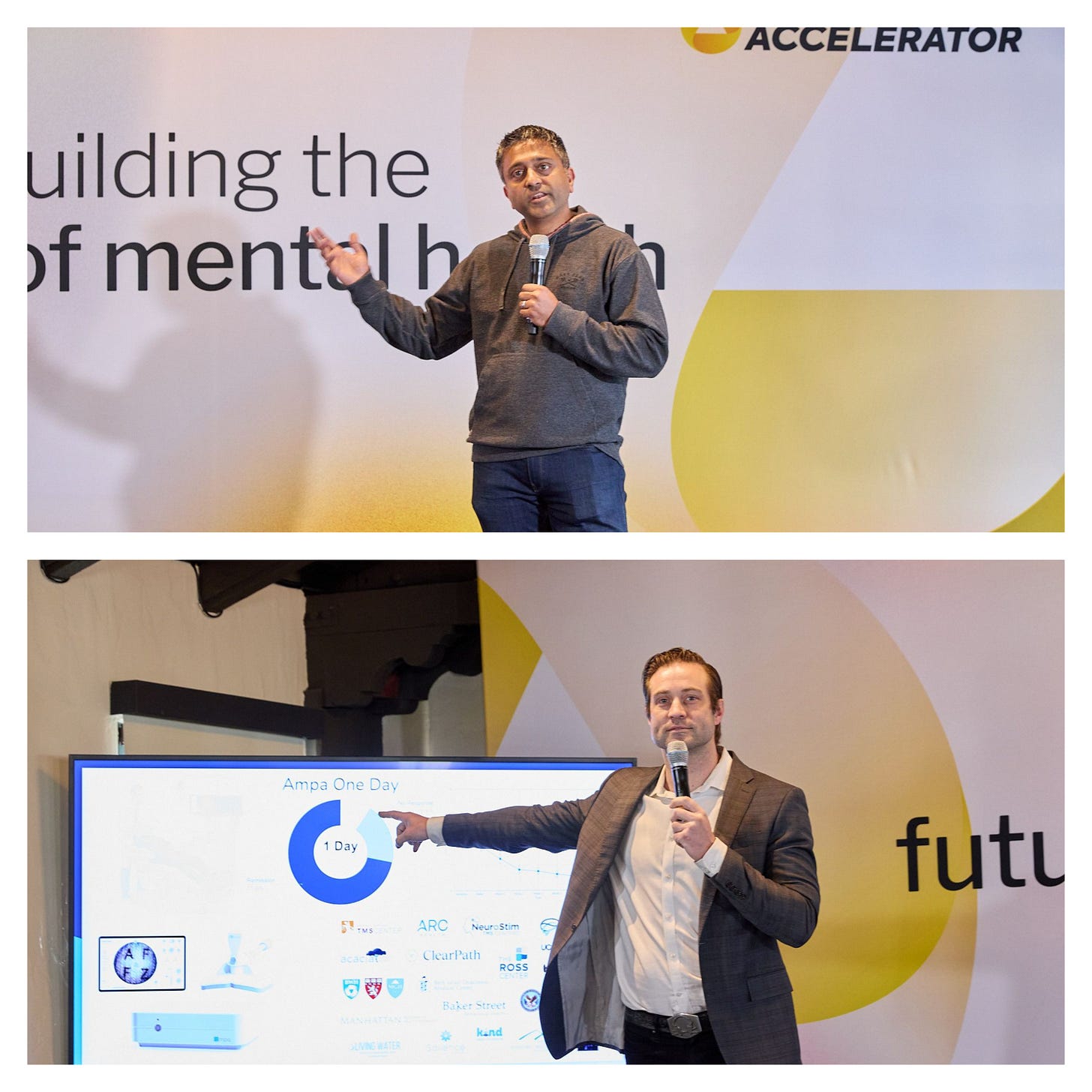
Apollo Neuro* has released an iPhone app called Apollo Sessions that uses the phone’s vibration capacity to deliver therapeutic haptic sensations without the need for a wearable. For example, Hug Vibe—free to try—is a two-to-five minute session delivered by placing the phone on your chest, thereby transforming the stress of a vibrating phone into a calming force. As for the popular wearable, see it featured on Good Morning America in February.
In the wake of Blue Monday, “the most depressing day of the year,” TARA Mind* released their Mental Health Savings Calculator. The desktop app uses an employer’s workforce-specific data or industry benchmarks to help quantify the cost of untreated mental health conditions—as well as the cost-saving opportunities of Ketamine-Assisted Therapy and TARA Mind’s innovative benefit programs.
The Texas Ibogaine Initiative proposes a carveout of $50m in state funding—to be matched by a drug developer in a public-private partnership—with an aim to develop ibogaine as an FDA-approved treatment for opioid use disorder. Though a similar proposal was not adopted by those administering Kentucky’s Opioid Abatement fund in 2023, stronger evidence and an altered regulatory environment may prove decisive.
Selected Published Research
In Nature Biomedical Engineering, Motif Neurotech*’s Jacob Robinson and his co-authors argue for a new taxonomy that distinguishes between Brain Computer Interfaces (BCIs) that address communications and movement versus therapeutic BCIs that offer medical benefits in areas such as epilepsy and psychiatry.
The Feel Therapeutics* team published a paper in Nature’s Digital Medicine journal showing that a 16-week intervention, using wearable sensors and personalized cognitive-behavioral therapy through a mobile app, significantly reduced symptoms of Depression and Generalized Anxiety in 200 adult participants.
Thirty years after publishing the first peer-reviewed studies on DMT and 20 years after the first post-prohibition study of psilocybin for OCD, the American Journal of Psychiatry has dedicated a special issue to psychedelics. The issue reviews the sizable body of work in this area and lays out remaining methodological challenges that the field faces as it further matures.
The Ampa Health* team released a pre-print of their study showing that neuroplastogen drugs can enhance depression treatment using Transcranial Magnetic Stimulation. The effect is so powerful that an entire therapeutic course can be delivered in a single day, rather than requiring weeks of clinic visits. For more on this from CEO Don Vaughn, see the Q&A in this issue.
*Companies marked with an asterisk are part of the Satori Neuro portfolio.
Where to Find Amy
February 27 at the University of Texas, Dallas, Center for Brain Health—ACCELERATE! Breakthroughs in Brain Performance Summit
March 12—Satori Neuro Annual Meeting (Virtual)—Invitation Only
March 21-23 in Menlo Park, CA—Brain Mind Science Collective
April 7-11 in Vancouver, BC—TED2025
April 22-23 in Washington, DC—BCI Visioning Workshop
May 7 & 8 in San Francisco—Bridge Funding Global Flagship Annual Conference
We would love to hear from you! Reach out to us at neuro@satoricapital.com, and feel free to share this newsletter with anyone you think might be interested.
Satori Neuro is an investment strategy focusing on mental health, brain health and wellness, the application of neuroscience technologies, and human flourishing.






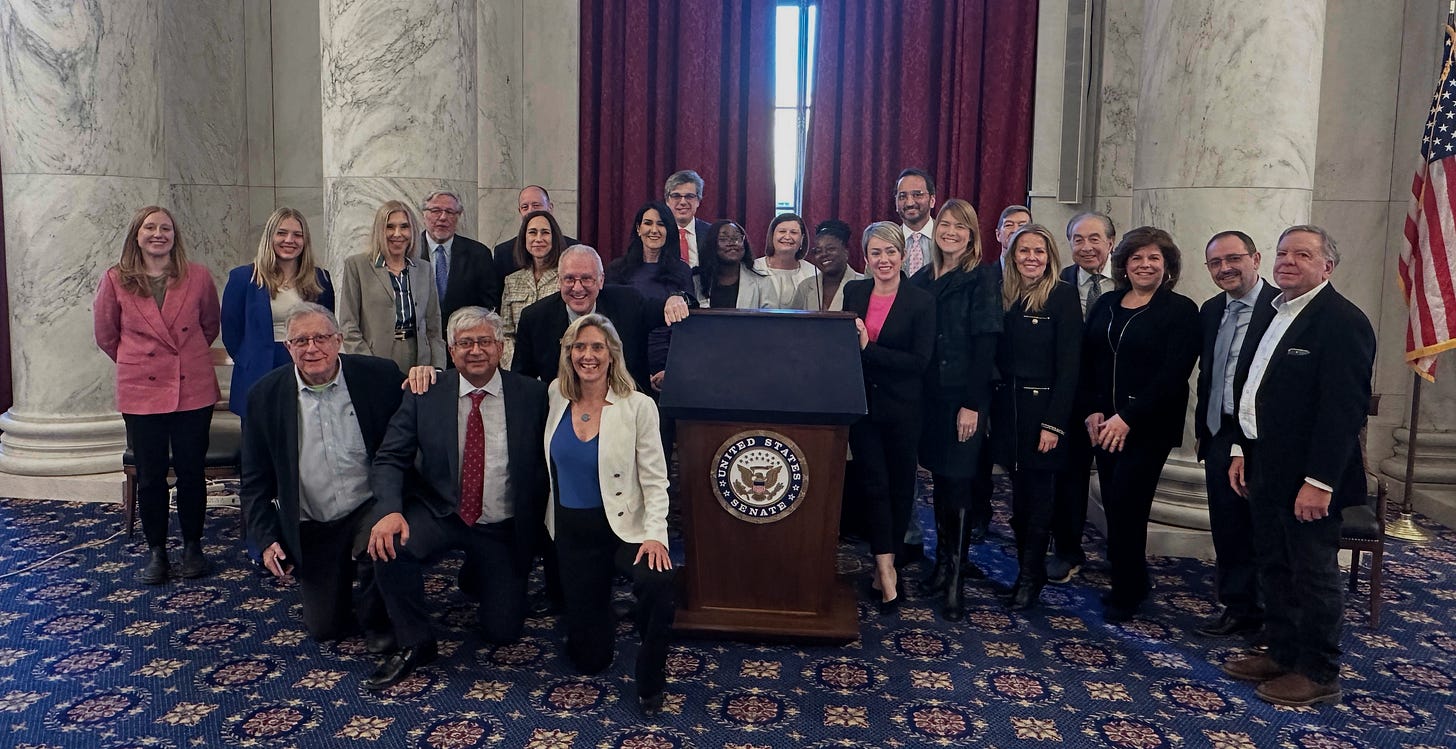
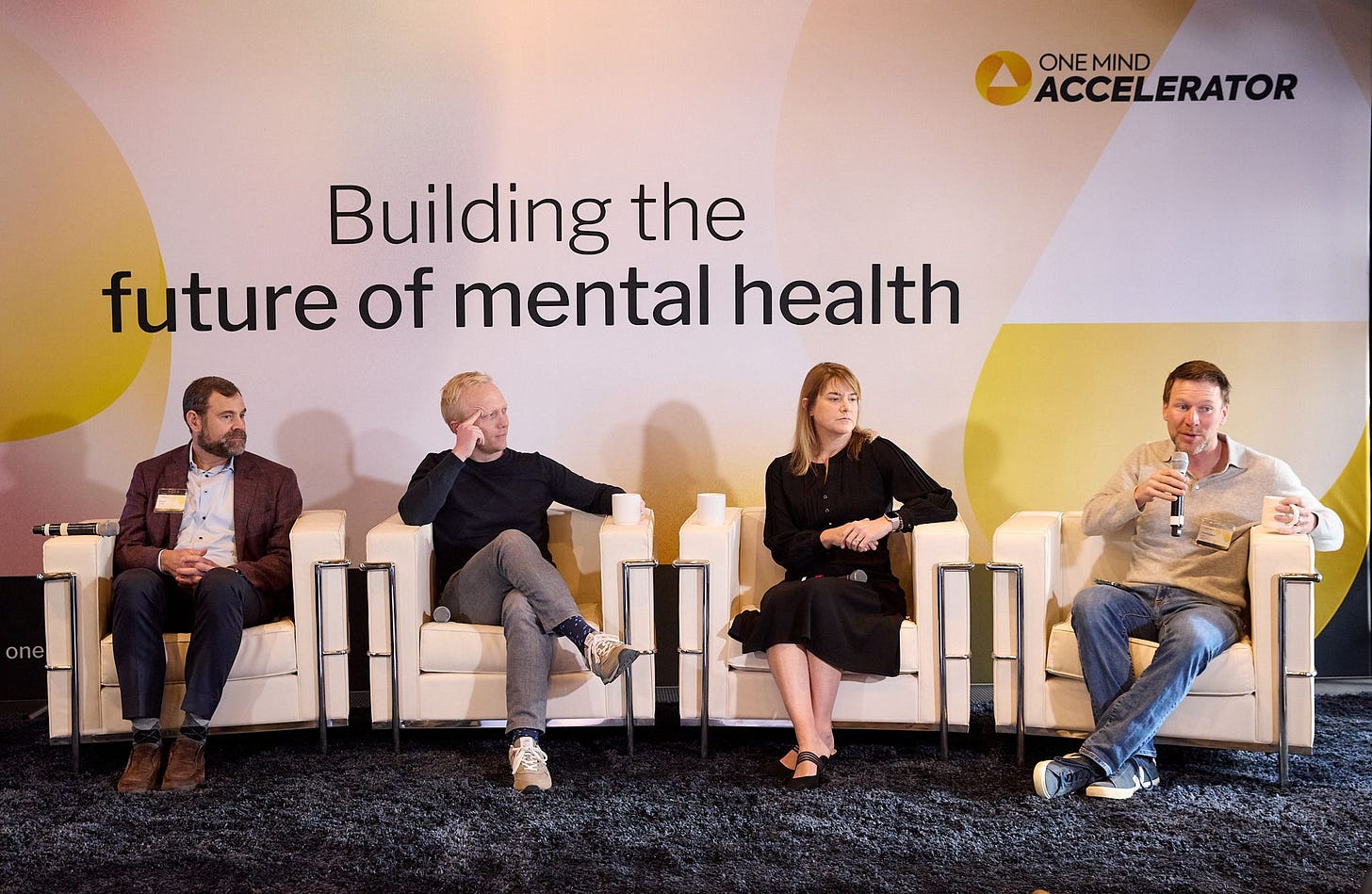
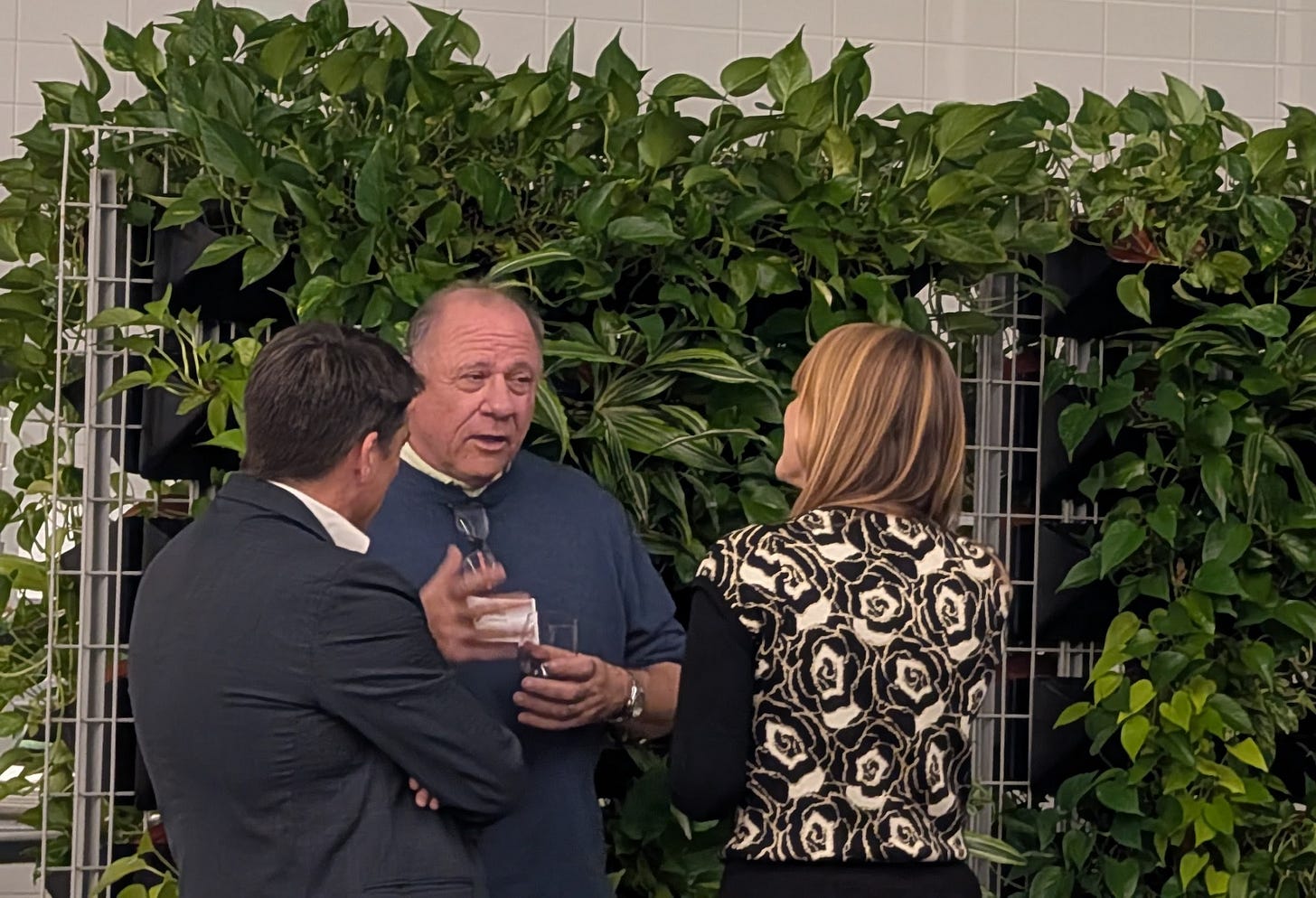
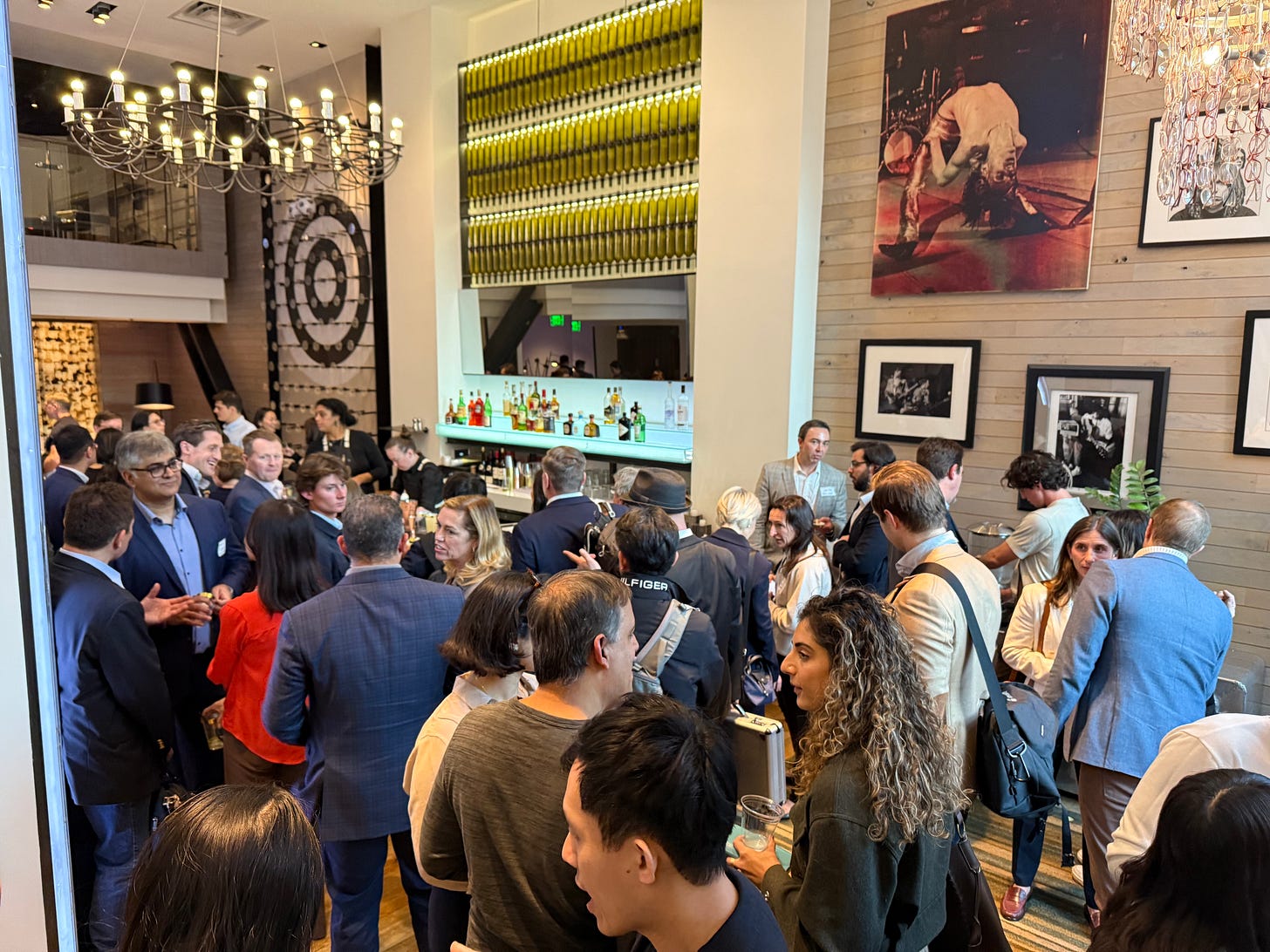
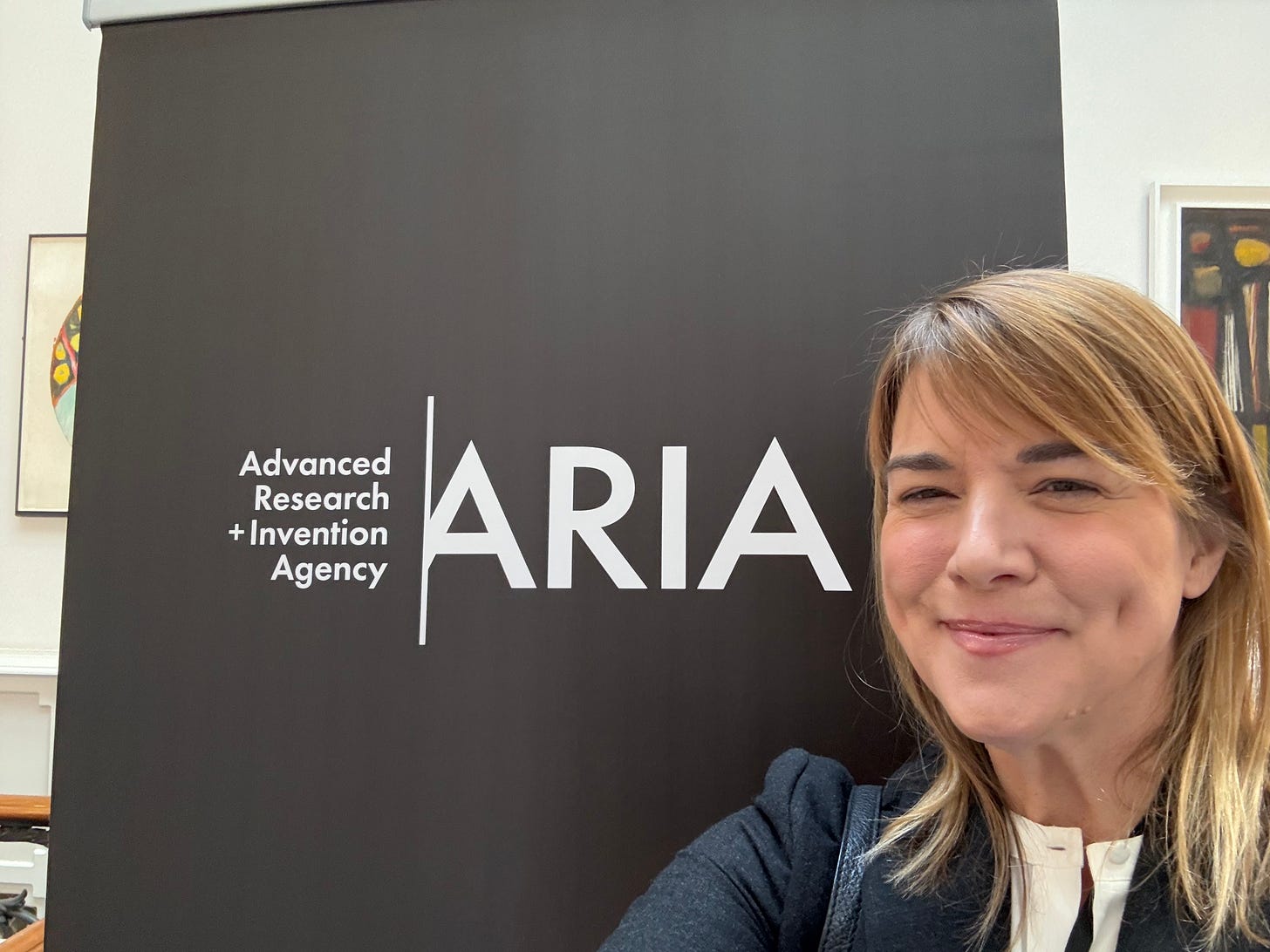
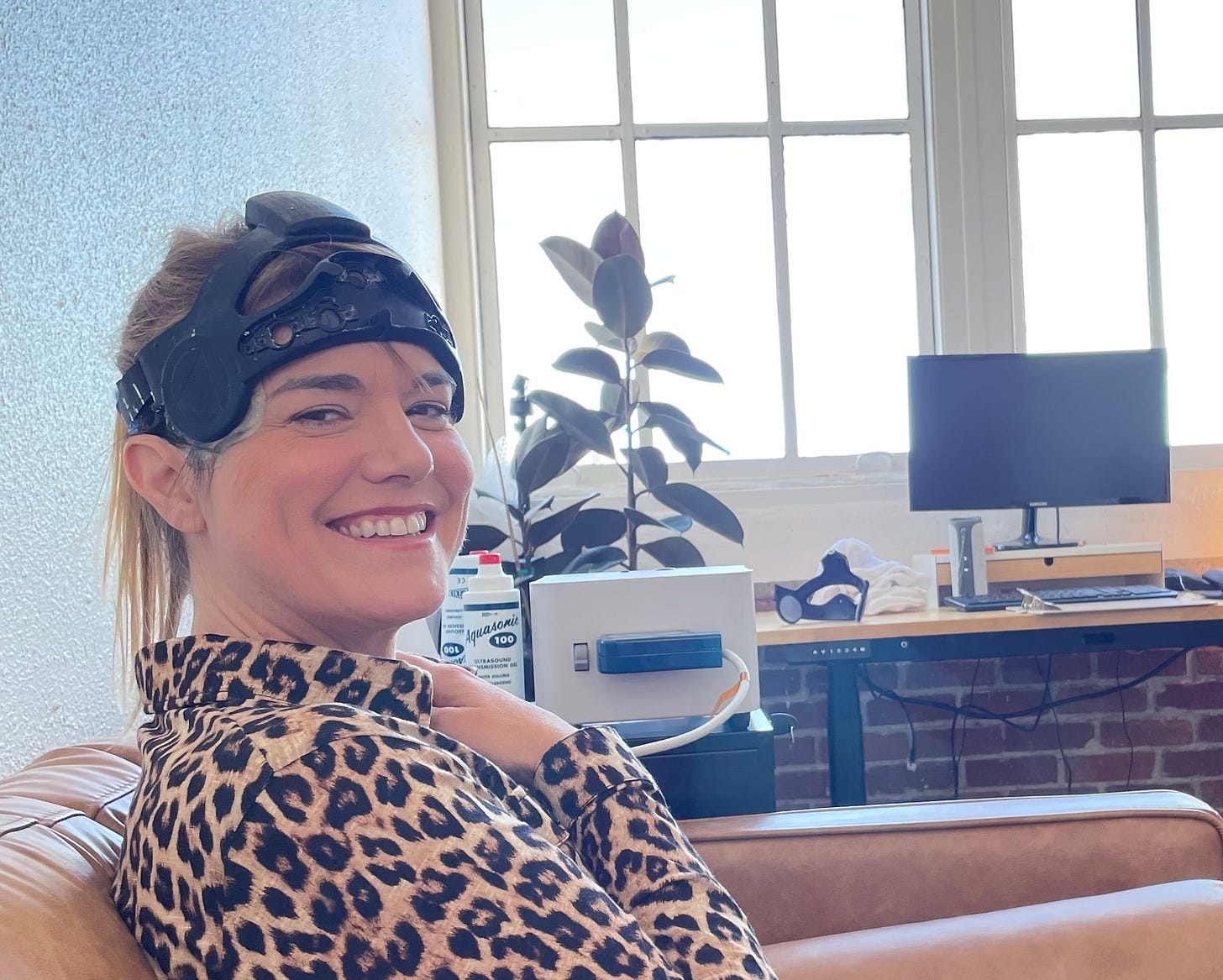
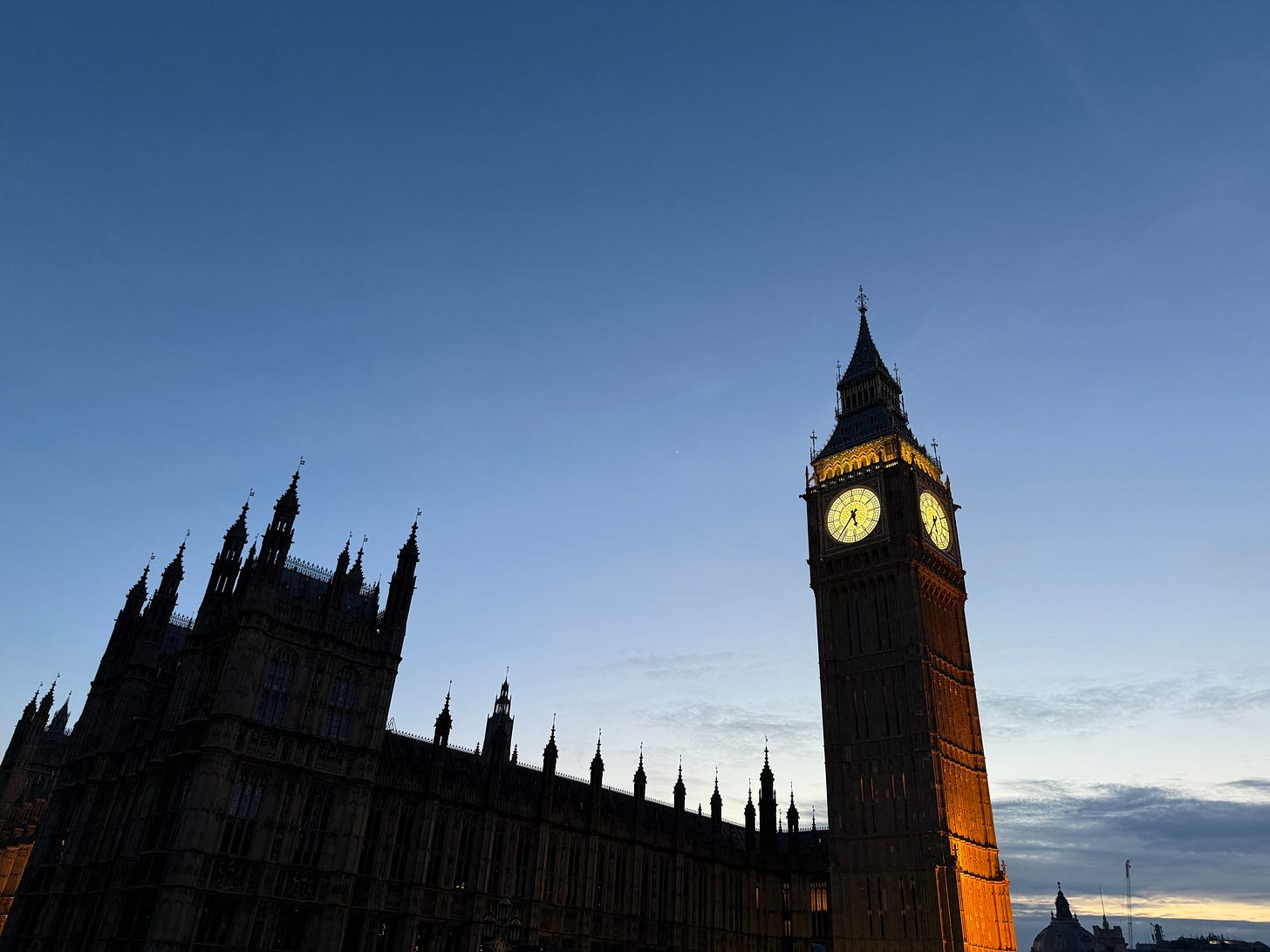
Holy smokes. Amy covers more ground in a month than most people do in a year. Best in the game!